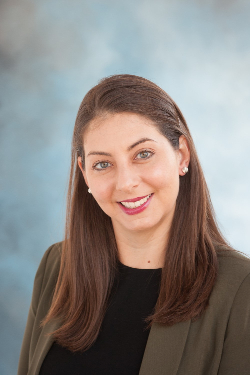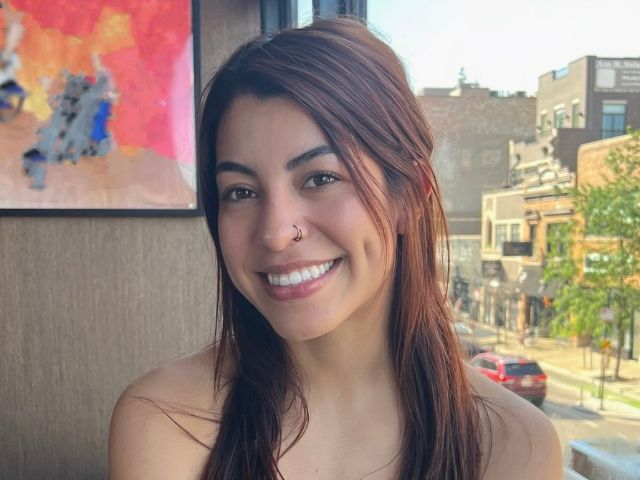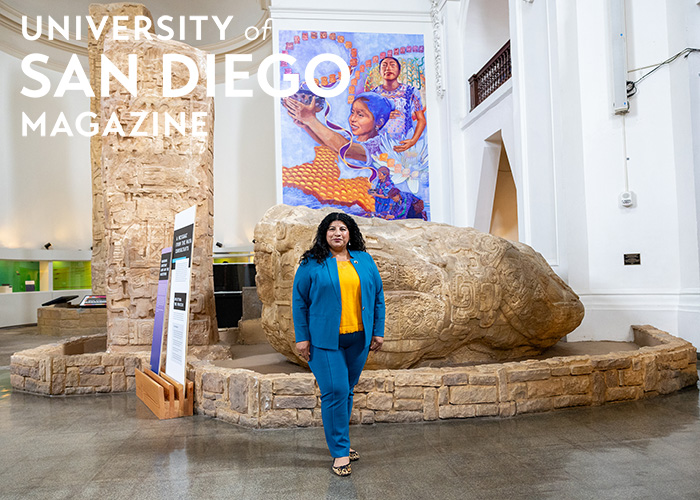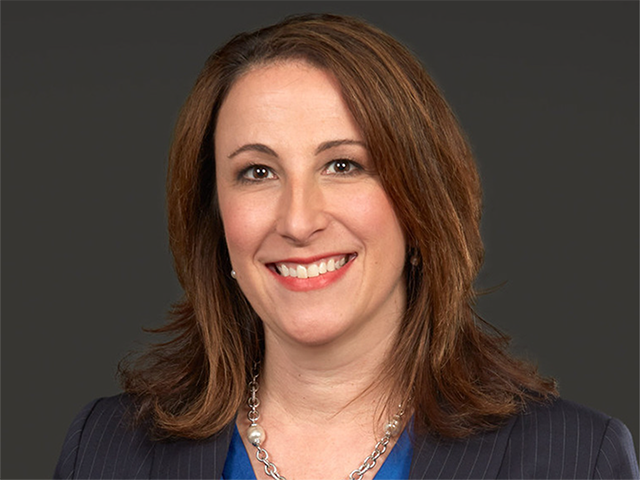Meet Melissa Floca, the Kroc IPJ's New Program Officer for Cross-Border Initiatives

In December 2020, Melissa Floca joined the Kroc School’s Institute for Peace and Justice (Kroc IPJ) as Program Officer for Cross-Border Initiatives. In her role at the Kroc IPJ, Melissa will develop a portfolio of research and programming focused on creating a peaceful and inclusive U.S.-Mexico border region. To help the community get to know her better, Melissa answered the following questions about her career and life, and the path that led her to the Kroc School.
What are the highlights of your career that led you to the Kroc School?
After graduating from college, I decided to go to Mexico for six weeks to volunteer and take Spanish classes. That decision, over 16 years ago, set me on the path that brought me here. Before moving to San Diego, I spent a number of years in Mexico working in the private sector. As a consultant at McKinsey & Co. in Mexico City, I had the opportunity to work with clients in government and at foundations on projects related to financial inclusion, public health, and low-income housing. I went on to launch a microfinance organization providing financial education and financial services to micro-entrepreneurs in Mexico.
In 2013, I took a job as the Associate Director of UC San Diego’s Center for U.S.-Mexican Studies, in part because I hoped the university environment would allow me to reflect on the systemic challenges I encountered in my work in Mexico. The vibrancy and complexity of the border region was a surprise to me and has motivated much of my work since that time. At UC San Diego, I built programming to connect students, faculty, and staff to stakeholders across San Diego and Tijuana. In 2014, I launched Frontera Fridays, a quarterly event that serves as a platform for learning, networking, and discussing opportunities and challenges that make our binational region unique. In 2015, I took over the Mexican Migration Field Research Program (MMFRP), refocusing the yearlong research practicum on issues of migration in the cross-border region. Students engaged in research to shed light on the impact of migration experience on the educational and professional trajectories of binational youth. Most recently, I helped lead the launch of the Border Solutions Alliance, a collaboration among universities along the U.S.-Mexico border working to promote use-inspired research grounded in the challenges faced by practitioners, service providers, and policymakers in border communities.
Of the many projects I have worked on since coming to this region, directing MMFRP was by far the most meaningful. Our research motivated me to create a portfolio of activities focused on supporting successful pathways to adulthood for youth in the cross-border region. It was an honor to work with students and other colleagues in San Diego and Baja California to launch near-peer mentorship programs, the Baja California Seal of Biliteracy, and training programs with university faculty and industry partners to connect students to careers in STEM.

What are you most looking forward to in your new role as Program Officer for Cross-Border Initiatives?
The San Diego-Tijuana metropolitan region is an innovation and manufacturing powerhouse where binational collaboration is the norm. At the same time, it is an uncomfortable truth that both cities suffer from tremendous socioeconomic inequality and that Tijuana has one of the highest homicide rates in the world. I think many people in our community do not know how to engage with the seeming contradiction between the dynamism and marginalization in our region.
More and more, I have come to see these two facets as deeply interconnected. Many of the same global forces that drive the region’s successes are responsible for its challenges. For example, low wages in Baja California attract significant foreign direct investment, but also make it easy for cartels to recruit young people with limited options. Border infrastructure connects to highways that enable cross-border trade and production, while also facilitating the trafficking of drugs, people, and guns.

There are many reasons to be proud of our vibrant cross-border metropolis. However, the levels of violence and inequality in the region are not a fluke, but rather a byproduct of our success. I am excited about the opportunity for our cross-border initiatives to contribute to the creation of an ecosystem of actors that have the necessary knowledge and relationships to reduce vulnerabilities across the region. I hope that my work can help drive consensus around how to invest in economic development and institutions to put our region on a trajectory to a more peaceful and inclusive future.
What do you hope to accomplish in your first year with the Kroc IPJ?
This feels like a bit of a loaded question coming out of 2020! I am optimistic that 2021 will provide an opportunity for new beginnings and fresh perspectives but am also cognizant that we still have many hard months ahead in the U.S. and perhaps a longer road to recovery in Mexico. I plan to start the year by launching a call for non-residential fellows based in Southern California and Baja California working in academia, civil society, or the public sector. As we revamp our cross-border initiatives, the fellows will anchor a network of local scholars, practitioners, and policymakers working to reduce vulnerabilities for women, provide opportunities for at-risk youth, protect migrants, increase access to justice, and control violence while simultaneously minimizing human rights abuses. We will also release a series of thought pieces on the border by thought leaders working on issues related to social trust, human security, and drug violence that will provide an intellectual framework for our activities going forward. I very much hope that towards the end of the year we will begin to come together again in person and can host an inaugural annual conference on peacebuilding at the border.
How do you like to spend your time when you're not working?
Well, lately I read a lot and go on long walks with my dog and my husband. I have a newfound appreciation for simply being outside. As soon as possible, I plan to spend all my extra time coming together with friends and family and doing things I used to take for granted like sharing a meal, taking a yoga class, or going on a road trip.
Interested in learning more about the Kroc School's Institute for Peace and Justice and Cross-Border Programs? Learn more here.
Contact:
Kevin Do
kdo@sandiego.edu
(714) 717-6614



